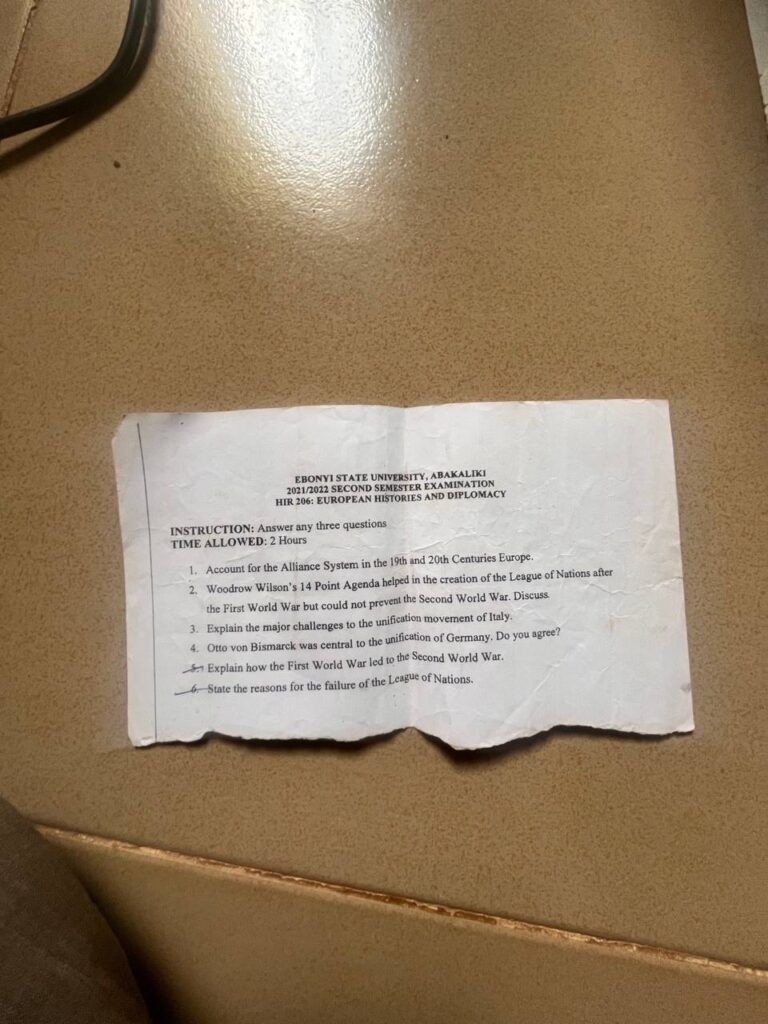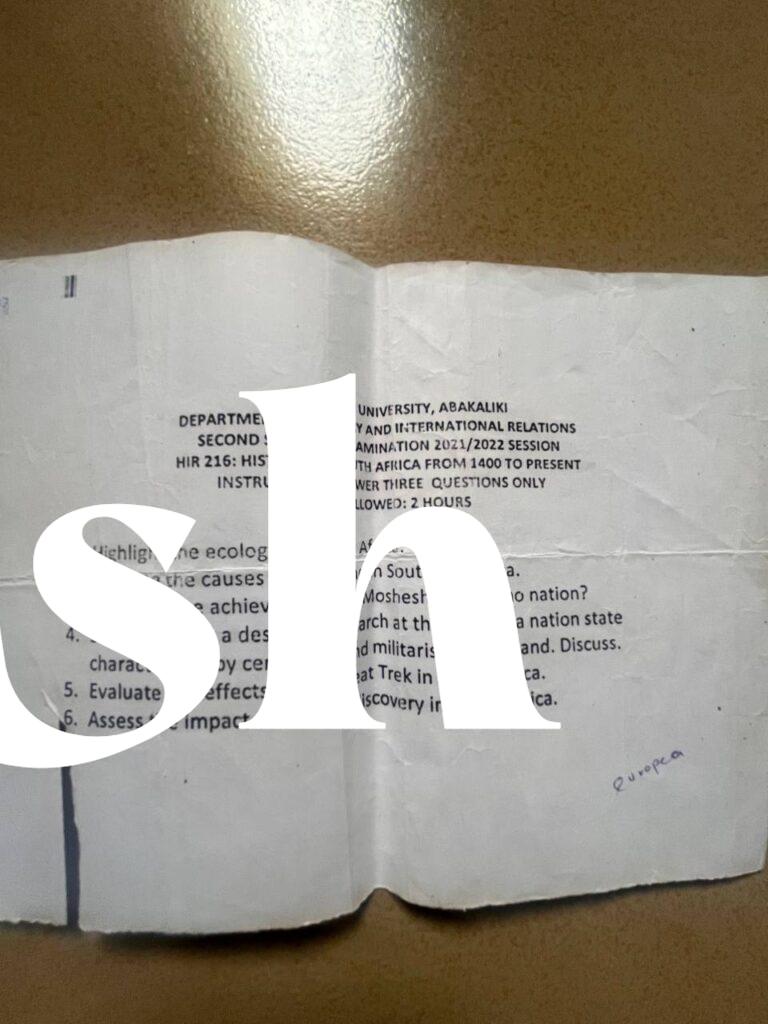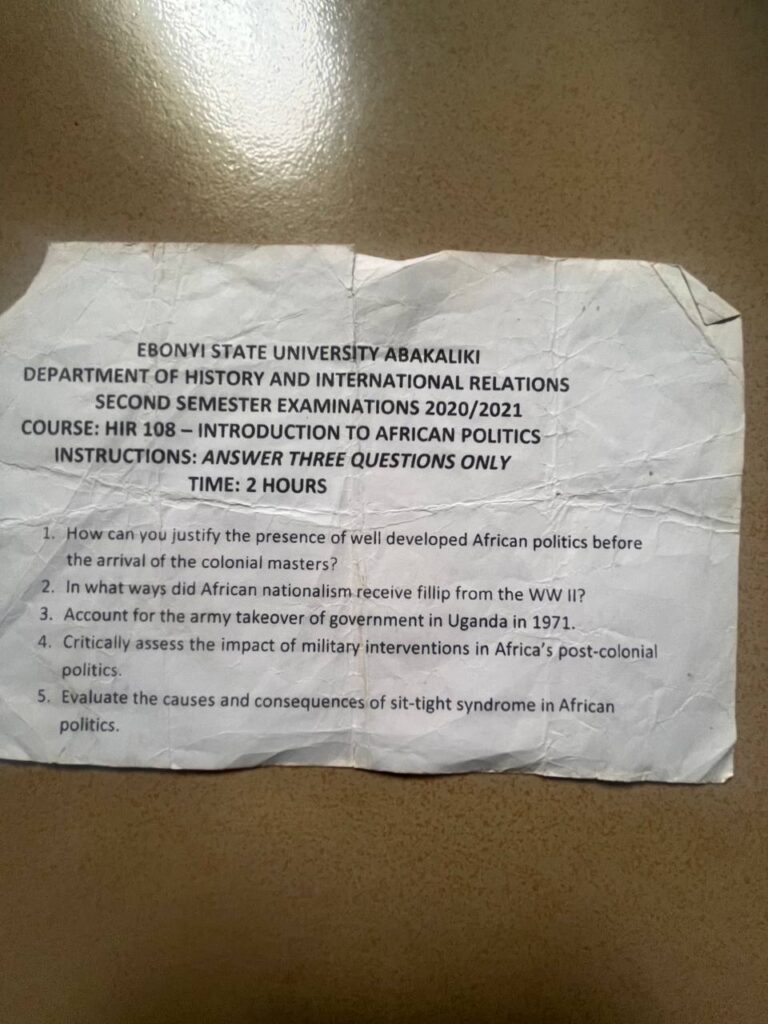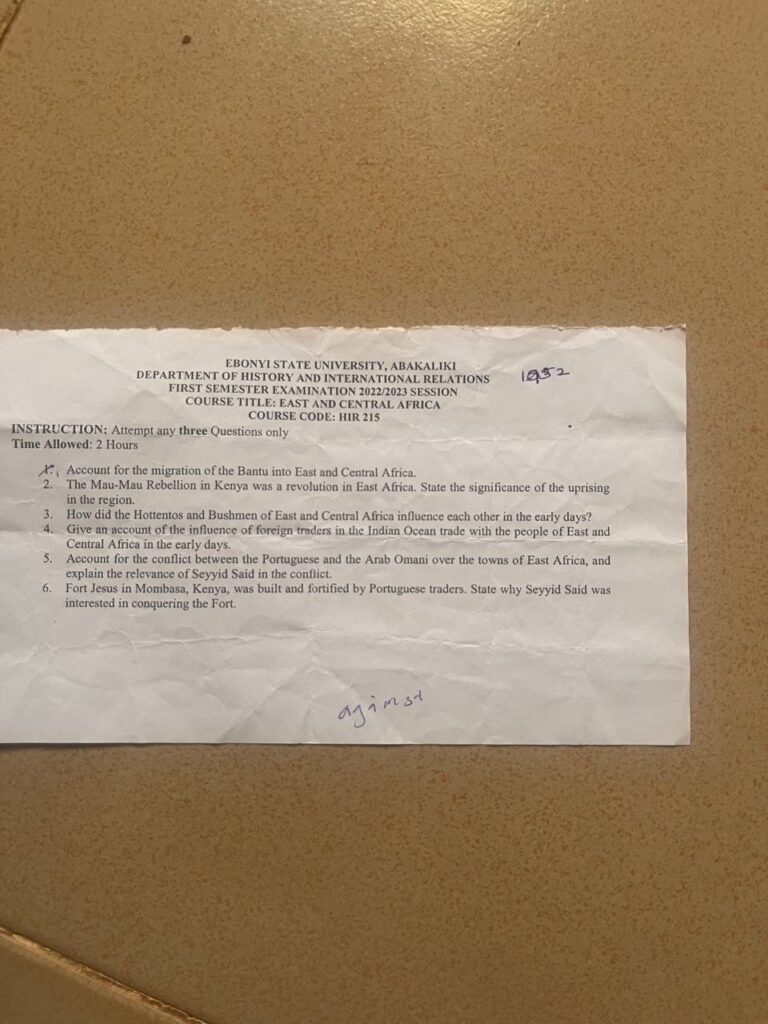LAW 102 – NIGERIA LEGAL SYSTEM ll
LAW 102
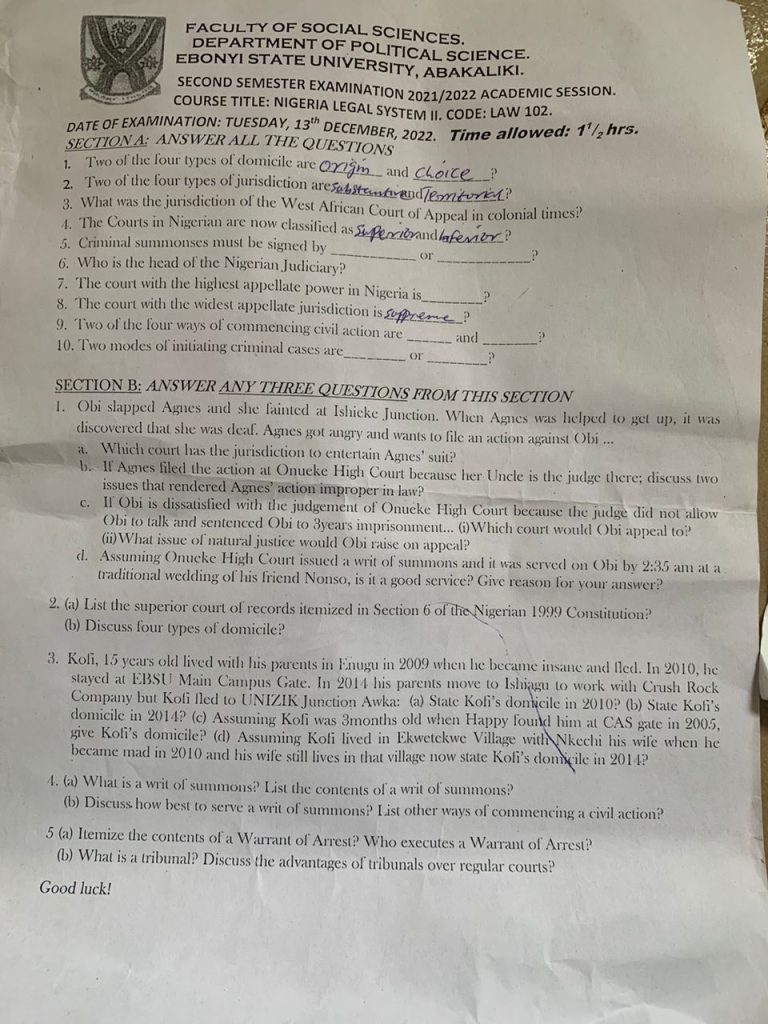
SECOND PAST QUESTIONS
The questions
- What is repungancy test under the customary law.
1b. What areas do you know the court has held customary law to be repugnant. - What is customary arbitration.
2b. What makes customary arbitration valid and binding. - What are the problem associated with the reliance on books and manuscript in proof of custom.
3b. How do we proof of custom and tradition in our court.
4a. When do we say that a custom has been judiciary noticed.
5a. State the hierarchy of courts in Nigeria.
5b. What are the hierarchy of law or sources of law.
6a. Differentiate between act and decree.
6b. Differentiate between edict and laws.
Solution to Second Past Questions
- The repugnancy test in customary law serves as a safeguard, ensuring that local customs align with broader societal values. If a customary practice is found to be repugnant, meaning it conflicts with established principles of morality or public policy, the court may declare it invalid or unenforceable. This legal mechanism helps prevent the perpetuation of practices that go against fundamental human rights or societal norms. For example, cases involving practices like human sacrifice, slavery, or extreme gender-based discrimination may trigger the application of the repugnancy test.
- Customary arbitration, as a form of alternative dispute resolution, relies on traditional practices within a community to resolve conflicts. For it to be valid and binding, the parties involved must willingly agree to participate, ensuring a consensual process. The fairness of the arbitration proceedings is crucial, and the final decision must adhere to basic legal principles to be recognized and enforceable within the legal system.
- Relying on books and manuscripts to prove customs poses challenges due to potential inaccuracies, variations, or outdated information. Courts may prefer other forms of evidence, such as oral testimonies, witness accounts, and expert opinions, to establish the existence and content of a particular custom and ensure a more accurate representation of the community’s practices.
4a. A custom is said to be judiciously noticed when it becomes widely recognized and accepted within society, eliminating the need for formal proof in a court of law. This recognition is often based on the general awareness and adherence of the community to the custom, making it a well-established and commonly known practice.
5a. The hierarchy of courts in Nigeria starts with Magistrate Courts, followed by High Courts, the Court of Appeal, and ultimately the Supreme Court. Each level of the judiciary has specific jurisdictions and powers, with higher courts having the authority to review decisions made by lower courts.
5b. The hierarchy of law or sources of law encompasses the Constitution as the supreme law, statutes (laws passed by legislative bodies), common law (judicial decisions and precedents), and customary law (traditional practices and norms within specific communities).
6a. An act is a law passed by a legislative body, typically the parliament, reflecting the will of the legislature. On the other hand, a decree is a law issued by an executive authority, often in times of emergency or under special circumstances, granting extraordinary powers to the executive.
6b. An edict, similar to a decree, is a law promulgated by an executive authority, often used in historical contexts or certain regions. Laws, in a more general sense, can originate from various legislative processes and may cover a broader scope of subjects compared to edicts.

